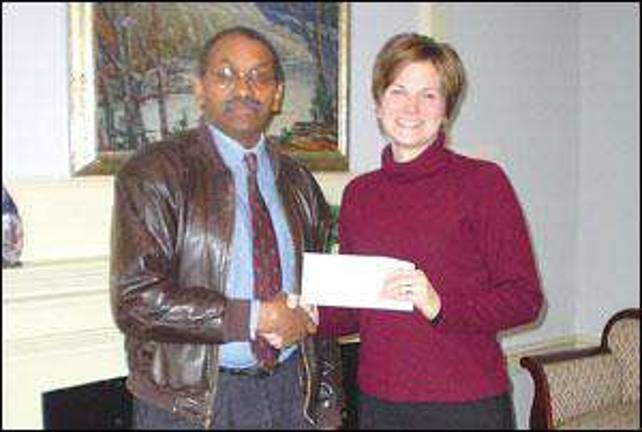Historians research the road to freedom through Northeast PA

STROUDSBURG - Without tracks or rolling stock, an Underground Railroad ran through Northeast Pennsylvania more than 150 years ago. Before the Civil War, black slaves who escaped the South were subject to return to their owners under the Fugitive Slave Law, so slavery opponents in the North hid the railroad’s “passengers” as they secretly moved them north toward Canada. Researching the region’s Underground Railroad is tricky, said Monroe County Historical Association’s Executive Director, Amy Leiser. “The whole study is involving this secret mission. That is what makes it so tricky.” In December, a Montrose, Pennsylvania anti-slavery studies group recognized the historical group for its efforts with a donation of $500. The Center for Anti-Slavery Studies’ President Sherman Wooden presented the donation to the Monroe County Historical Association in recognition of its work on December 21. Being involved in the research is “exciting,” said Leiser, who said the historical association was contacted by the anti-slavery group. “About this past year we really moved forward with it.” Information on the assistance and hiding of slaves by at least three Monroe County families, said Leiser, has emerged, including the existence of one secret room in a Stroudsburg home. According to Leiser, one of the largest, if not the largest, populations of abolition activities was in Philadelphia. Its large Quaker population was actively opposed to slavery. According to the Pennsylvania Historical and Museum Commission (www.phmc.state.pa.us), records are scarce about early nineteenth century slaves who had fled their southern slaveholders,“because secrecy was crucial,” and that most information comes from recollections recorded years later. “Most participants probably knew nothing about the activities of the Underground Railroad beyond their immediate neighborhoods. They simply fed and hid the fugitives and passed them along to the next station. They asked few questions, and when the slave hunters knocked, there was, in reality, little they could tell them.” Underground Railroad networks and other abolition activities in northeastern Pennsylvania are the focuses of The Center for Anti-Slavery Studies. The region had important underground routes through Pennsylvania, New Jersey and New York. The Center has organized a 10-county traveling exhibit, in collaboration with Keystone College, receiving funding from the National Endowment for the Humanities and the Pennsylvania Humanities Council, and dependent upon the participation and assistance of historical societies and organizations like the Monroe County Historical Assocation. For more information, the Center for Anti-Slavery Studies,located at 75 Church Street in Montrose, and can be reached at its toll-free number 877-772-6084 or at its website www.antislaverystudies.org. For more on the Monroe County Historical Association,visit the website www.mcha-pa.org or call 570-421-7703 or e-mail at mcha@ptd.net.